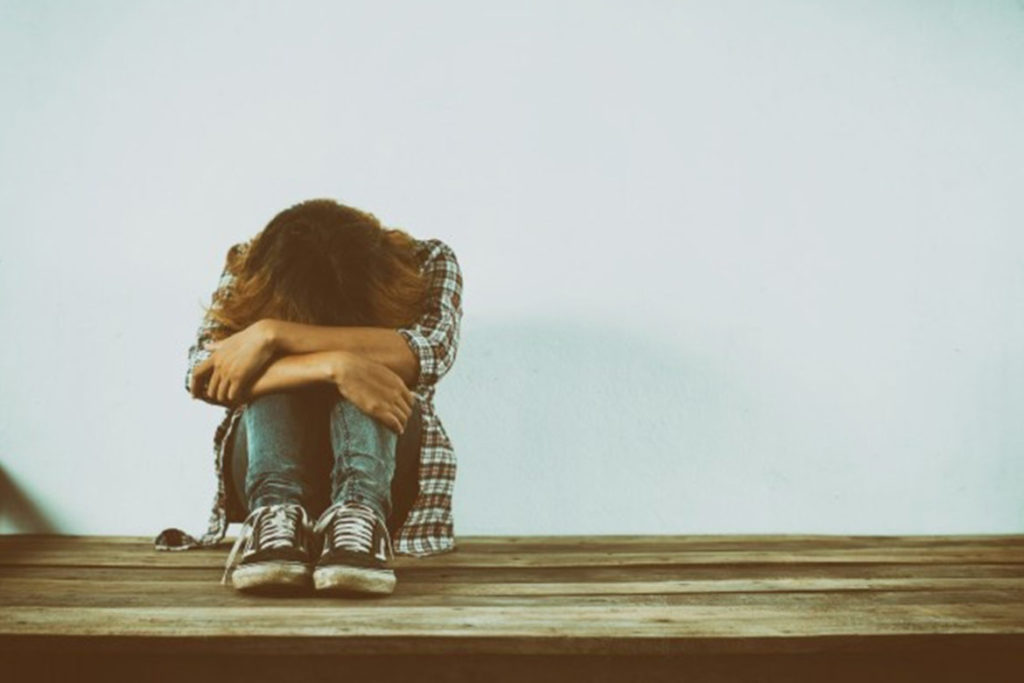Delhi High court is hearing a clutch of petitions regarding the Constitutionality of the exception-2 to the IPC section 375, which provides immunity to married men from rape changes if done with their wife. Individual petitioners and several women rights NGOs have raised this issue time and again. Marital rape is a form of domestic violence. Marital rape refers to forcing the wife to have sex without her consent. Such acts are unjust but still, such cases are not uncommon.
The concept of marital rape in India can be seen as a paradigm of implied consent. Here marriage between a man and a woman means that both have given consent for intercourse and cannot withdraw it later.
Condition in India:
- Data from NCRB and NFHS clearly depicts that more than two-thirds of women in India are subjected to domestic violence, which also includes sexual abuse.
- Especially, in a country like India, where the institution of marriage is considered almost irrevocable socially, women are always under immense pressure to not report atrocities on them.
Where does India stand on marital rape legally?
- Exception-2 to Section 375 of the IPC excludes involuntary sexual relations between a husband and wife of more than fifteen years of age from the definition of “rape” prescribed under section 375 and thus prevents prosecution of such acts.
- The only remedy available to a married woman under such circumstances is available under IPC section 498-A, which penalises domestic violence including sexual acts.
Why is it a matter of concern?
Non-recognition of marital rape is not only the denial of human rights of women but also is the treatment of women as the property of Husbands.
Colonial spirit law: The nature of decriminalization of marital rape in India dates back to the British period. Marital rape is largely influenced and derived from the theory of ‘merging of the woman’s identity with that of the husband’. When IPC was drafted in the 1860s, a married woman was not considered an independent legal entity. The matrimonial exception to the definition of rape under the IPC was modelled on Victorian-era patriarchal norms that did not recognize men and women as equals and did not allow married women to own property, and included under the principle of husband-shelter the identities of husband and wife were merged.

Read more: Future of Earth: What COP26 Has Offered To The Only Living Planet?
Against the spirit of Article 14: Marital rape violates the right to equality guaranteed under Article 14 of the Indian Constitution. The exception included under Section-375 creates two classes of women, based on their marital status, and provides immunity to men from acts committed against their wives. As such, this exception, while at the same time protecting unmarried women from similar crimes, increases the chances of a married woman being subjected to atrocities without any reason other than her marital status.
Defeats the purpose of Section 375 of IPC: Section 375 of IPC aims at protecting women and punishing persons indulging in inhuman activity such as rape. However, exempting the husband from punishment is completely contrary to this purpose, as the consequences of rape are the same whether the woman is married or unmarried. Furthermore, it may be more difficult for truly married women to escape abusive situations at home as they are legally and financially attached to the husband.
Violation of Article 21: As per the interpretation given by the Supreme Court, the rights enshrined in Article 21 of the Constitution include rights to health, privacy, dignity, safe living conditions and safe environment etc. In the State of Karnataka Vs Krishnappa case, the Supreme Court held that sexual violence is an inhuman act apart from an unlawful infringement/intrusion of a woman’s right to privacy and sanctity. In the same judgment, the Supreme Court held that non-consensual intercourse amounted to physical and sexual violence.
What are the challenges in criminalisation?
- Destabilize the institution of marriage: So far the government has said on several occasions that criminalizing marital rape would endanger the institution of marriage and also violate the right to privacy.
- Misuse of Legal Provisions: There is increasing misuse of Section 498A of the IPC and the Protection of Women from Domestic Violence Act, 2005. Making marital rape a crime can become an easy tool to harass husbands.
- Besides, it would be very hard for the investigation to check the veracity of charges.
- It will further increase the burden of the already overwhelmed Police and judiciary.
Does this mean India should not criminalise it?
Yes, there are several challenges, but that doesn’t mean that we live in oblivion citing the above challenges. At present, marital rape has been declared a crime in more than 100 countries of the world, but unfortunately, India is one of the 36 countries in the world where marital rape is still not classified as a crime.
In 2013, the United Nations Committee on the Elimination of Discrimination Against Women (CEDAW) had suggested the Indian government to criminalize marital rape.
Moreover, the J S Verma Committee, formed after the nationwide protests over the December 16, 2012 Nirbhaya rape case, had also suggested the removal of exception-2 in IPC section 375.
With the removal of this law, women will be safe from marital tyranny and will be able to get the necessary help to recover from marital rape. Also, they will be able to protect themselves from domestic violence and sexual abuse.
It is high time now, Indian law now gives separate and independent legal identities to husbands and wives, with most judicial doctrines in the modern era explicitly concerned with the protection of women. In such a situation, the legislature should take cognizance of this legal imbecility and bring marital rape under the purview of law while providing several safeguards to counter fake cases.
Also read: Legal Works After Marriage And Before Separation That Involve In Parenting Plan
